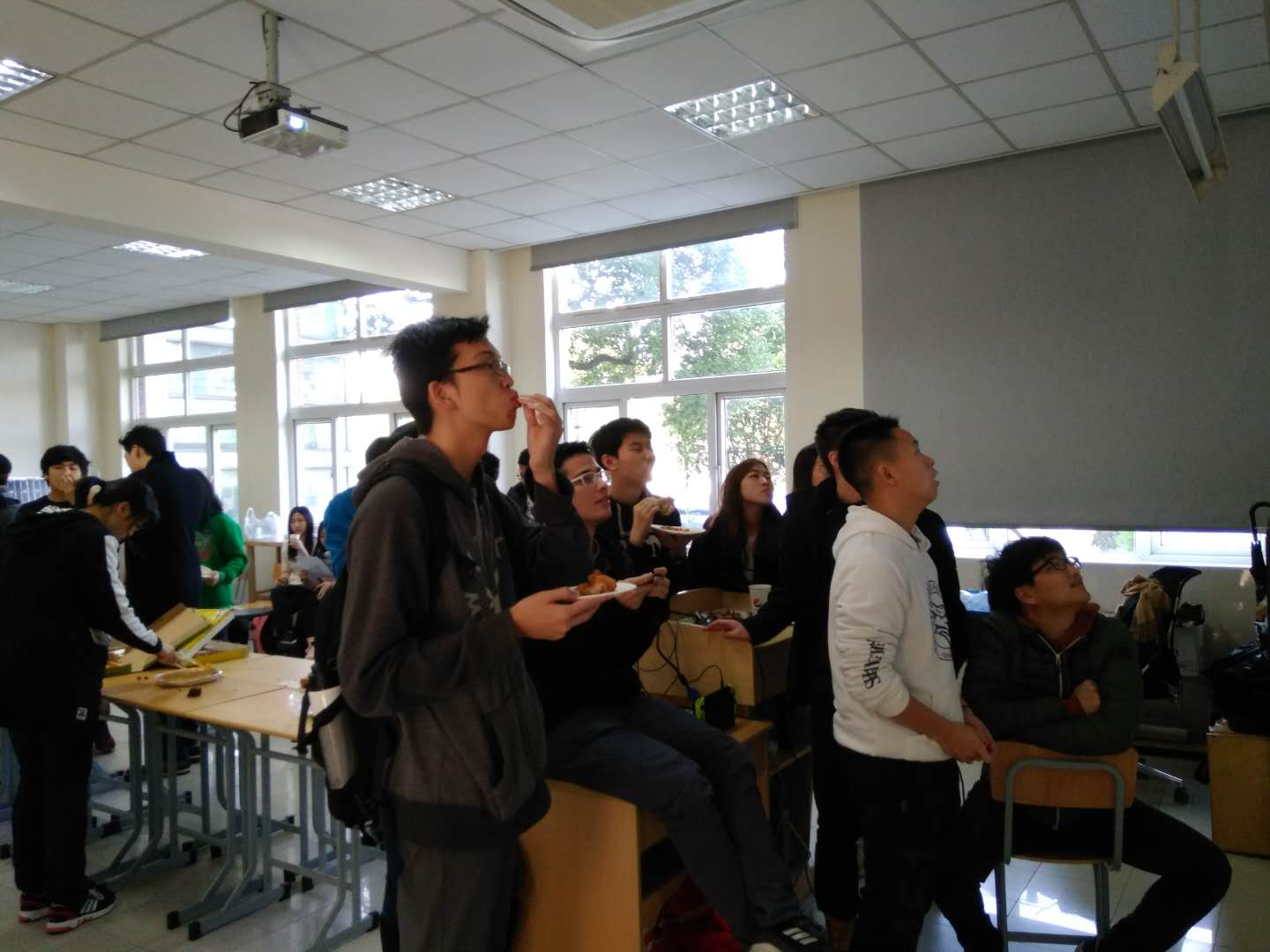How should we be celebrating Thanksgiving?
Papier mâché turkeys adorn the walls of the Elementary School as energetic young children rush through the hallways excited for the first class of the day. On the other side of the Chuangxin River, MHS students are frantically on their phones and computers ordering turkeys and pasta and pizzas for their class celebrations.
Thanksgiving has long been a tradition celebrated at SMIC, especially after it was established as a school holiday in the 2014-2015 school year. However, despite its lengthy history, it seems that many students have gradually forgotten the true story behind Thanksgiving, only perceiving it as a day for feasting and festive fun.
The current widespread knowledge of Thanksgiving is commonly attributed to political and economic objectives. In the United States, Thanksgiving was first established as a national holiday in 1863 by President Abraham Lincoln. According to The Telegraph, it is very likely that President Lincoln proclaimed the holiday primarily as an opportunity to unite the nation amidst the tumultuous Civil War that left it divided. In 1939, President Franklin Delano Roosevelt tried shift Thanksgiving by a week in order to help retailers earn more before Christmas during the Great Depression. This move was met with widespread opposition from 16 states, and FDR ultimately relented two years later and returned the holiday to the fourth week of November. But what is the place of Thanksgiving at schools and especially SMIC, a community where many members may not share the same cultural and political history?
Some students find that Thanksgiving has too often been commoditized. For example, Tweety Lin (12C) remarks, “In the context of Thanksgiving [as it is celebrated at] SMIC, the first thing I think of is food and turkeys. [I think] many of us have forgotten about the meaning of Thanksgiving and now treat it as just another day but with class parties.
Is our primary object to relay the historical practices in the original Thanksgiving festival that the Pilgrims and the Wampanoag shared in 1621? If so, we aren’t doing that right. According to Time magazine, there exists no evidence that the original 1621 congregation was called Thanksgiving, nor that it was an annual gathering. In fact, the feast was never repeated for at least 10 years, after which the symbiotic relationship between natives and whites crumbled and increasing settlers gave way to the spread of disease and animosity. Jacqueline Keeler, an American who traces her ancestry to the Yankton Dakota Sioux, celebrates Thanksgiving as a national holiday but with a different interpretation. She says, “Thanksgiving tells a story that is convenient for Americans… [but] I recognize it as a chance for my family to come together as survivors… in defiance.” If our goal is merely to transmit factual knowledge about a politically significant event, we surely aren’t achieving the pedagogical objective with the present curriculum.
Enlightenment philosopher John Locke once noted, “To love our neighbor as ourselves is such a truth for regulating human society.” If our underlying message is to teach students to be charitable and kind persons of character within their communities, with students more focused on food than thanks, this goal is often not fulfilled. In fact, we often undermine any lessons in ethics by promoting Thanksgiving overconsumption: according to the Natural Resources Defense Council, six million turkeys worth $293 million “ended up in the trash” every year.
Today, with the increasing commercialization of holidays, the purpose of celebrating Thanksgiving is becoming even more blurred. It’s become like a shopping holiday akin to Taobao’s Singles’ Day in China – Adobe predicts that Thanksgiving sales “grew 11.5 percent over last year to $1.93 billion.”
In an era of cultural practices evolving as a result of increased globalization and commercialization, our community should reconsider whether we are meaningfully celebrating a holiday, or if we are simply conforming to a trend resulting from a holiday lost.
Photo courtesy of Wesley Ding
Caption: Senior Sharks watch friends play video games at their Thanksgiving feast

